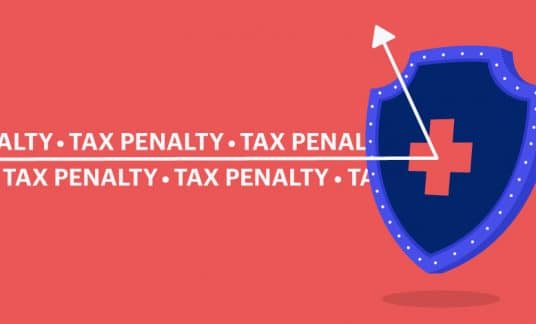Reducing fixed overhead expenses will lead to a direct improvement in profits. Each dollar saved in overhead expense is a dollar added to profits.
Businesses have two types of costs: fixed and variable. Fixed costs are business overhead expenses that must be paid regardless of the company’s sales revenues. Variable expenses are costs for labor, materials and supplies that go into the manufacturing of products or providing services. Variable costs change with the sales volume.
What Are Business Overhead Expenses?
What is overhead in business? Business overhead expenses, by definition, are fixed monthly or annual costs that must be paid for a company to stay in operation.
-
Some Overhead Examples
- Rent for office, warehouse, plant, etc.
- Insurance for property, vehicles, general liability and business interruption
- Administrative salaries, benefits and bonuses
- Office supplies
- Utilities such as gas, electricity, water, sewer, internet and telecommunications
- Wages, benefits and incentive bonuses
- Marketing materials and advertising costs
- Accounting fees
- Licenses and permits
- Property taxes
- Interest on loans

Ways to Reduce Overhead Costs in Business
Start a systematic business overhead-reduction program with the following steps:
- Begin by making a detailed list of all business overhead expenses.
- Prioritize each expense line item. Focus on those costs that aren’t 100% necessary.
- Now start from a budget of zero for each item and justify each one, not based on the previous year’s expenditures.
- If the expense is justified, what is the cheapest or most efficient solution?
Don’t try to make sweeping changes all at once. Attack each expense line item one at a time to see and wait to see the impact on your overhead costs. Monitor the changes on a monthly basis.
Here are some ways to reduce your company’s overhead costs:
Record Keeping
Here’s an easy way to save money: Go paperless. Get rid of the paper to cut down on the clutter and save money. You won’t have to buy any more paper or pay high prices for exclusive brand-name ink cartridges. No more need for mailing supplies and postage. And no more need for rows of filing cabinets.
You can sign contracts electronically and store important documents in the cloud. And don’t forget to back up everything in a separate location.
Accounting and Bookkeeping
Using good accounting software is essential for every business. First, it tracks all your expenses so you can identify where you are overspending. Second, it makes it easier for your accountant to find all the tax deductions you should be taking.
Accounting fees can be expensive, but you can reduce these costs when you make it easier for accountants to do their job in fewer billable hours.
Business Travel
Set up a budget for business travel and stick to it. You don’t have to eat at 5-star restaurants every night; look for places where the locals frequent.
Stay in business hotels, which are about half the cost of luxury hotels. Make sure all employees are members of hotel loyalty plans to get discounts and free nights. The same applies to airline rewards programs. Target a single airline for maximum payback.
Question the need for travel. Could you eliminate or reduce travel costs by holding video meetings or teleconferences with clients? What about using teleconferences instead of paying for off-site employees to fly in?
Set up a budget for client entertainment. Relationships aren’t necessarily built on lavish gifts and dinners at expensive restaurants. In fact, clients may react negatively if they see these high-end expenses as excessive in relation to the economy or size of the company.
Unused Services, Memberships and Subscriptions
Fees for these items are usually small, but they can build up over time and go unnoticed. Highlight services that you aren’t using. If you haven’t used one in the past 90 days, cancel it.
Are you getting worthwhile benefits from media subscriptions that come in daily or monthly and pile up in a corner of your office, unread? Do you really have time to read The Wall Street Journal every day? If you’re not using them, cancel them.
Review all your business, fraternal and social affiliations. Do they contribute to the profitable operation of your business? If not, cancel them.
Renting Equipment
Do the analysis of renting vs. buying. Renting allows you to upgrade more easily and possibly eliminate or reduce maintenance and repair costs.
Business Credit Cards
You probably already have a credit card for business use, but what benefits does it offer? Cards designed for business use offer travel miles, cash-back rewards or have some kind of point system.
It’s surprising how these rewards add up when you’re purchasing office supplies and paying travel expenses with a credit card. Go through your list of expenses and identify those items that could be paid with a business card and start earning rewards.
Check your card’s annual fees and interest rates. It may be time to apply for lower-interest cards with no annual fees.

Strategies to Reduce Overhead Expenses
While going through each line item of expense is a start, some situations call for embracing an overall strategy to cutting business overhead costs.
Consider the following:
Find Ways to Reduce Marketing Costs
Reduce your advertising and marketing expenses by using your existing customers as brand ambassadors. Encourage them to promote your business by offering discounts or free services for referrals or social media reviews.
Ask your customers for one- or two-sentence testimonials for posting on your website or in email newsletters. Even in this digital age, word of mouth remains a powerful marketing tool.
Partner with companies that offer complementary products to yours and share promotional costs and events such as trade shows.
Offer Telecommuting to Employees
This is the digital age. Is there administrative work or specialty tasks that could be performed by employees working from home?
You could cut down on rental costs for office space. Employees may accept lower salaries for increased freedom and no commuting costs.
We also are in the age of the “gig” economy: Freelancers are available for just about any task needed for your business. With contract workers you have the flexibility to hire and fire as needed.
Refinance Existing Debt
Review loans and other financing for equipment and real estate. Could any of these be refinanced at a lower interest rate?
With interest rates hovering around historic lows and this is a good time lock in good rates.
Lower Communication Costs
Do you still need a landline? Applications such as Google Voice and Skype have changed the way we communicate.
The type of communication system you develop depends on your industry, the size of your company and the number of employees. Most communication services now have mobile apps for staying connected outside the office.
If you still need a landline, voice over internet protocol might work for you and eliminate a bill from the phone company.
Incentivize Employees
Employees who are doing their jobs every day often know ways to improve company cost that you haven’t considered. Ask for their input and offer incentives for coming up with cost-saving ideas.
Creating a brainstorming team approach likely will bring up more ideas than you could by yourself.
Shop Around for Suppliers
Review prices and service levels from all suppliers in your market. Contact each one to see if you can negotiate better prices. You may find that they’re more willing to negotiate than you thought.
Take caution: Don’t spread your purchasing over too many suppliers in search of the cheapest price for each item. Concentrating your purchases will give you more negotiating power and create a stronger relationship with a vendor that could lead to other benefits than just lower prices.
Grade Your Staff
According to Inc. magazine, you can cut most administrative and service departments by 25% without any impact on the output and quality of work.
Cutting staff is never easy, but it’s part of being a good manager and accepting this responsibility for the benefit of yourself and the other employees. This step may be long overdue and is costing you money the longer you delay the inevitable.
Conversely, if you need additional staff, consider using contract workers instead of hiring full-time employees. This can keep your overhead low and makes the staff count easier to control in fluctuating markets.
Final Thoughts
As you go through your list of business overhead expenses, make sure that each one is absolutely necessary. You have to feel comfortable that each cost adds something to your company. If an expense doesn’t contribute to growth or profits, eliminate it.










